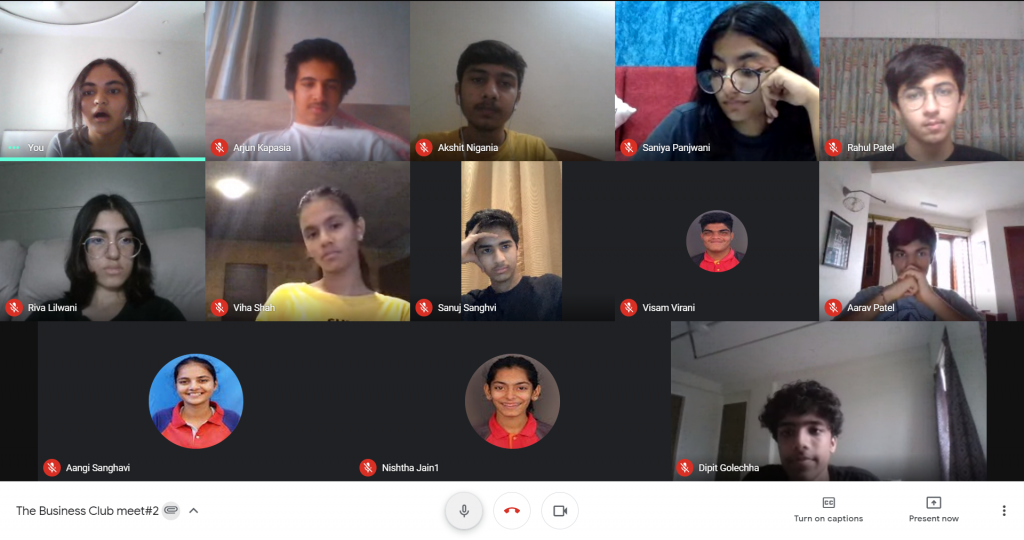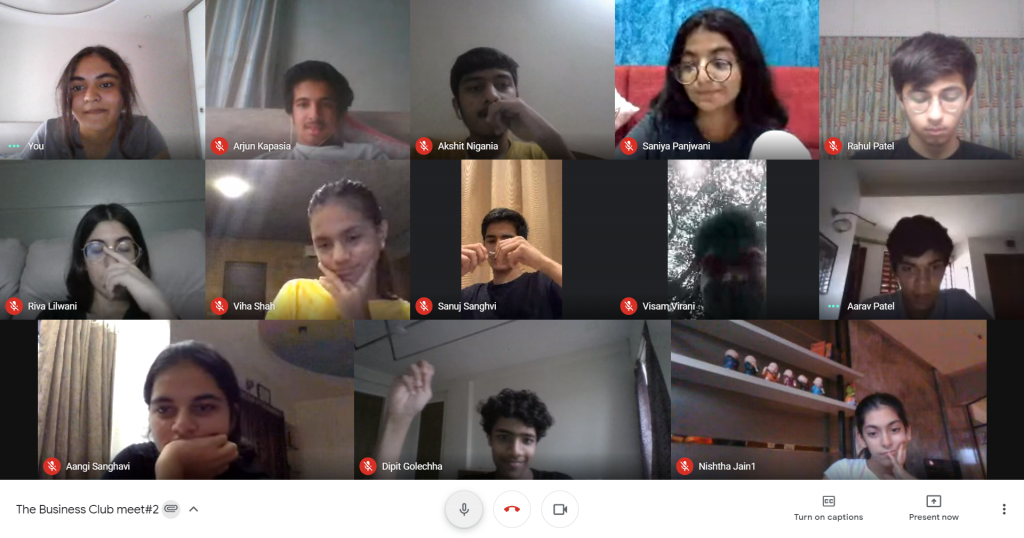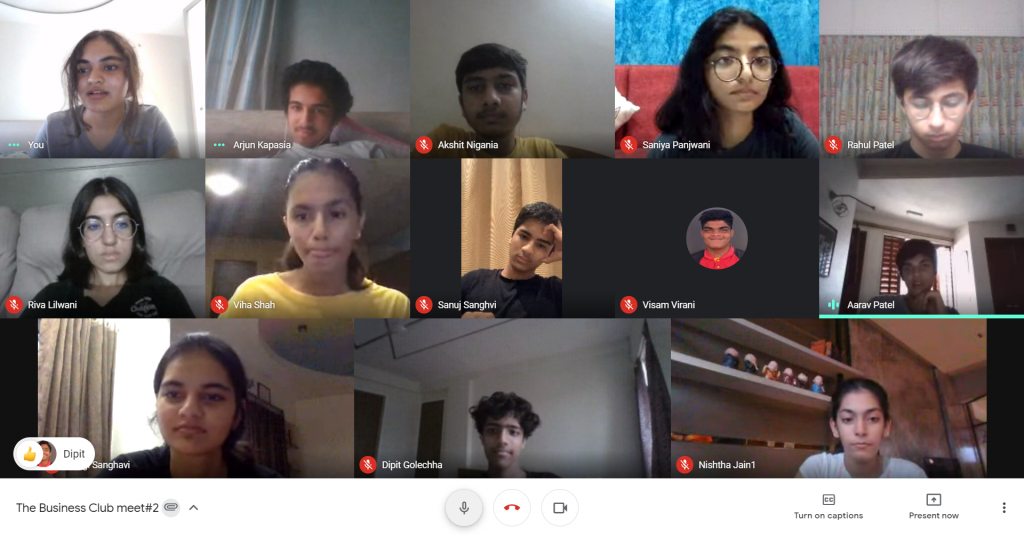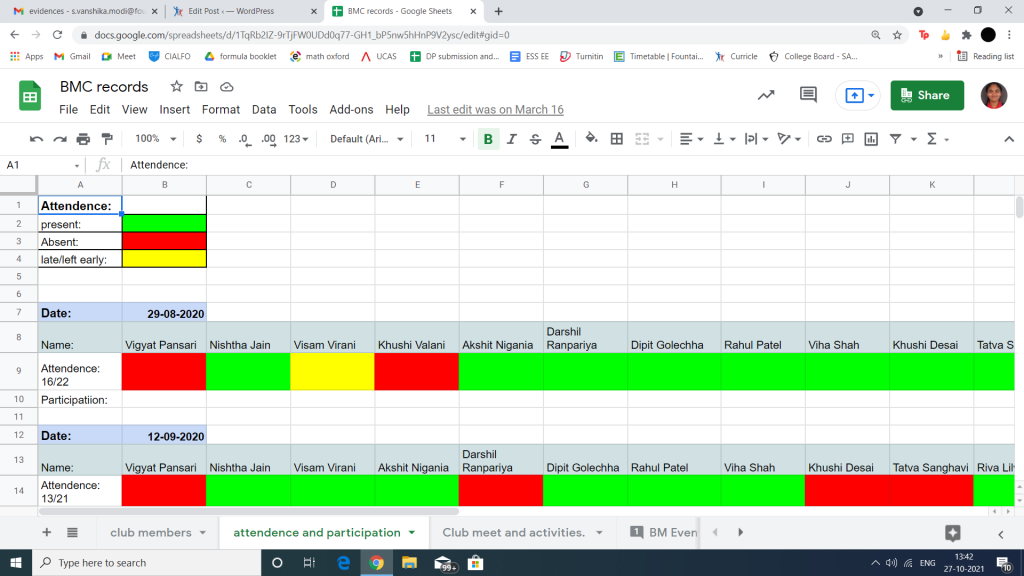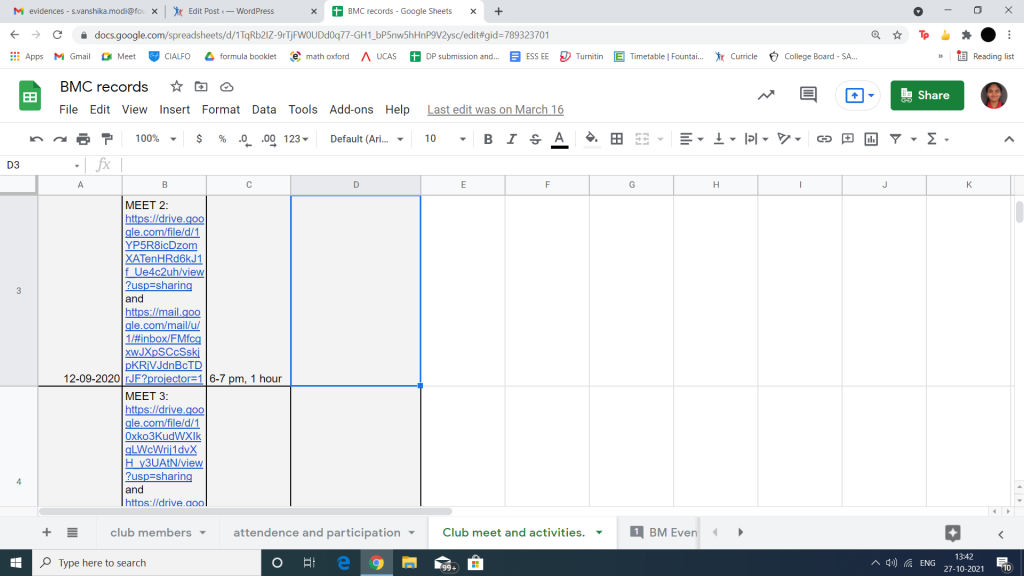(C- creativity, S- service)
The business club is a student-led club, initiated by me and two of my friends(Arjun and Aarav). Honestly, the idea of a business club first sparked my interest for the university applications to represent my leadership skills. However, gradually after a few sessions it started to hold more intrinsic value rather than the instrumental one. The sole purpose of the business club is to provide a platform for curious students(like our members) to extend their knowledge about the corporate world. So far, the members have mostly experienced online sessions, however, it has constantly helped us gain our entrepreneurial voices.
LO1- strengths and growth
Opting for business management as an IBDP subject helped me realise my passion for business. I was quick to recognise my strengths, which made me confident enough to open this club. However, the main weakness was that the idea of ‘clubs’ was still new to us. It was this year when fountainhead had officially started to have clubs, all student-led. This opened up a lot more to learn and enhance different types of skills.
Moreover, now that school has started offline, it has created more opportunities for us to think critically and creatively to design sessions as members can physically discuss in the same room.
LO2- challenges and skills
The most challenging part of introducing this club was the time. We introduced the club at the time of lockdown- this restricted us from meeting the members physically. It became obstructive for the club members to interact openly, and this eventually led to people not participating actively (not a type of response we were expecting). The other challenge came hand in hand with the last one- we had to come up with activities which would be interesting and enjoyable at an online platform. Considering the situation, we were also responsible to not compromise the club activities from being both fruitful and enjoyable. We overcame this challenge by putting in more time with our supervisors(Lisha ma’am and Ankita ma’am) to discuss and come up with unique themes for sessions. We called in an alumni who talked about psychology and e-commerce, interviews with businesses, we had our school’s BM TL lead a session for personal finance, debates over ethics and many more. Undertaking a new challenge helped us realize how capable we are, as well as how much potential we have for the upcoming ones. Skills like creative thinking, critical thinking, communication, and social skills have enhanced immensely after this. Overcoming challenges and inheriting new skills has definitely pushed me to respect myself more, and I think this is why learning new skills is important, it’s a part of our personal development.
LO3- initiating and planning
The initiating part was more difficult than the planning. This was because, at the time of planning, only the three of us and/or our supervisors would be with us. On the other hand, initiating consisted of people outside our comfort zone- it was the phase where people who were expecting something out of the session had joined and we had a responsibility to make it productive for them. Although I did discover that my initiating skills weren’t poor, the conflicts between us three(me, Aarav, and Arjun) would often be about who would initiate the meet- saying hi to people, catching up over their health- I was pretty good at it.
I think that both- planning and initiating anything in the future will be easier now, solely because I have an experience that includes these two together being unknown. Planning and initiating usually involve a few people, however, it is important to know how to plan and initiate activities so that we aren’t dependent on other people.
LO4- commitment and perseverance
As already mentioned, conducting club activities online was difficult. Commitment and perseverance were demanded every time when we sat to discuss the agenda for the next meeting. This was demanding because we ignored the fact that we had a choice of compromising how fun and enjoying a session could be. The commitment was also required in terms of ‘meeting’- the business club only meets twice or thrice a month so members must show up for meetings as they are less frequent.
It is very easy to give up and not commit to something. However, we chose to be persistent because it helps us complete the project, as well as makes us release how much we are willing to work for something.
LO5- working collaboratively
I’m a fairly open-minded person, so working collaboratively has always been a plus one for me. The members were students who were interested in business so we understood each other through similar lenses. However, there were a few members who wouldn’t participate actively, these were the members who weren’t hard to deal with, but I would often get annoyed by them. I handled this situation by kindly emailing them the last reminder with possible outcomes. Other than that, the members had healthy disagreements in discussions such as ethics in the corporate world. I believe that it is important to work collaboratively because, in scenarios like these, the productivity of sessions depends upon how much time we invest in useful discussions.
LO7- Recognize and consider the ethics of choices and action
Being the co-president of the business club involves being fair to each member of the club. This was the simplest form of ethics we followed- providing each member with equal chances to voice their opinions. Moreover, we also had to make sure that the themes of each session were descriptively right and that the sessions weren’t taking an unwanted turn that would misspend our limited time.
Overall, I developed learner profiles such as knowledgeable, risk-taker, communicator, balanced, open-minded, and thinker. Other than that, the business club could be linked to the IBDP subject business management because most of the background knowledge we had was through this subject. The activity benefited others by providing them with a platform to voice their opinions. My perspectives have definitely altered throughout the experience, by understanding what my peers have to say. I believe that we achieved success. However, if
I was to change something about this activity, I’d increase the frequency of the meetings. The meetings were less frequent and it somehow affected the members to take this lightly.
